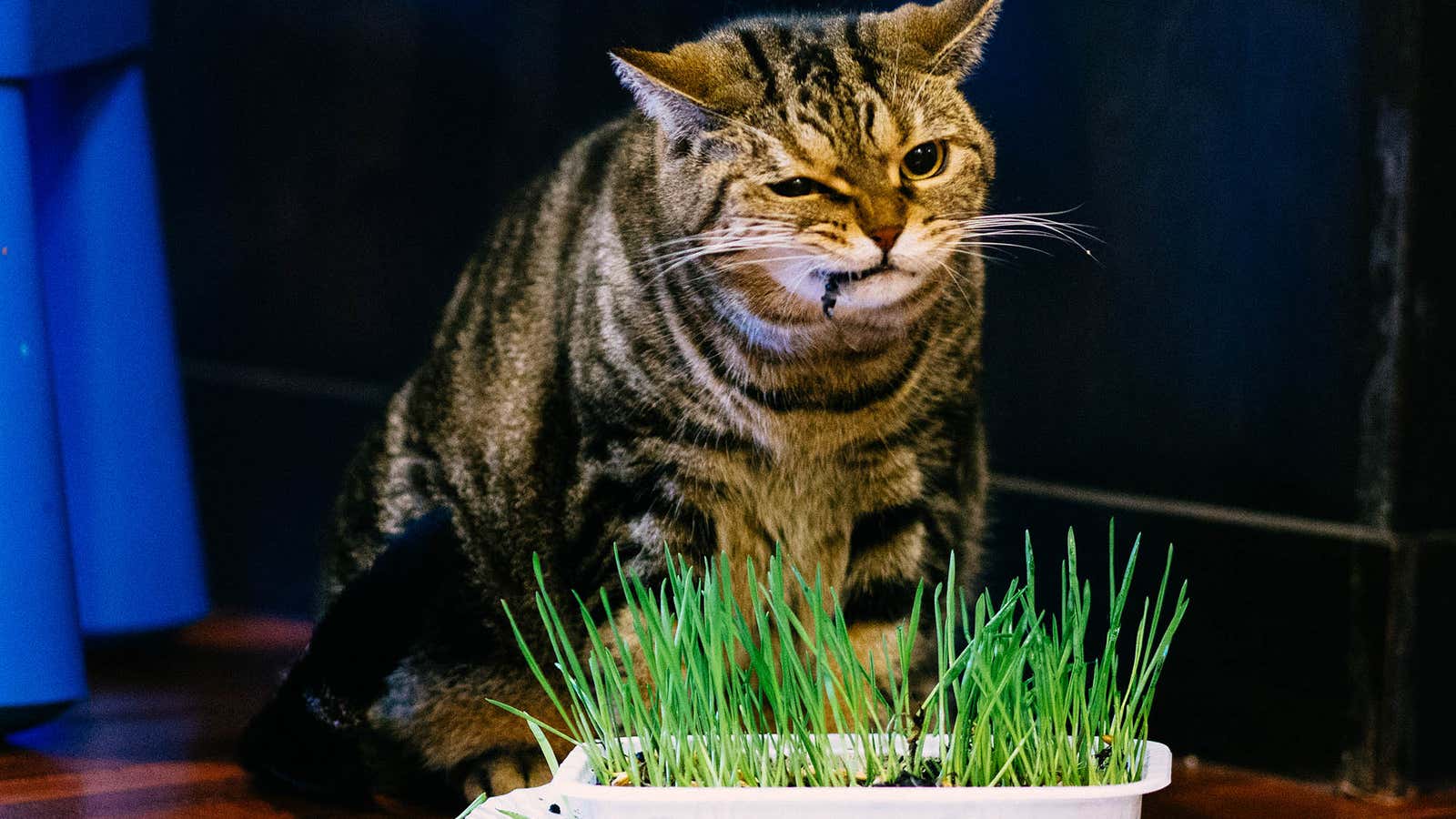Cats are famously fussy eaters. And while in public, cat owners might play the pickiness as a sign of sophistication in their feline friends, quietly, they ask themselves: why is my cat so picky with his food?
Geneticists believe the answer to that vexing question might lie in the genome of our beloved feline foodies. In a study published in PLOS One, researchers at Monell Chemical Senses Center in Philadelphia were surprised to find that cats had 12 different genes for bitter taste.
Cats won’t tell us if they can taste bitter, so to be sure Monell researchers did their own tests. They inserted cats’ taste-receptor genes in human cells and found that, indeed, the cells responded to chemicals that also activated bitter-taste receptors in humans.
These genes are typically found in herbivores and thought to help them avoid poisonous plants, which can often be detected by their bitter taste. Carnivores like cats, should have no need for such receptors, so evolution should’ve made the domestic cat lose those redundant genes. Why hasn’t that happened?
Turns out bitter-taste receptors might have other use. Recent research has found these receptors in humans not just in the mouth but also in the heart, lung, and testes. They are thought to help defend against infection.
Dogs, too, have been endowed with a similar proportion of bitter-taste receptors. But a study published in BMC Neuroscience earlier this year shows that cats’ receptors seem to respond to a much wider array of bitter-tasting chemicals than those found in dogs.
So foods that taste bland to humans or dogs, might leave a bitter taste in a cats’ mouth. And if true, cat-owners might have real reason to believe that cats simply have better taste than dogs.




